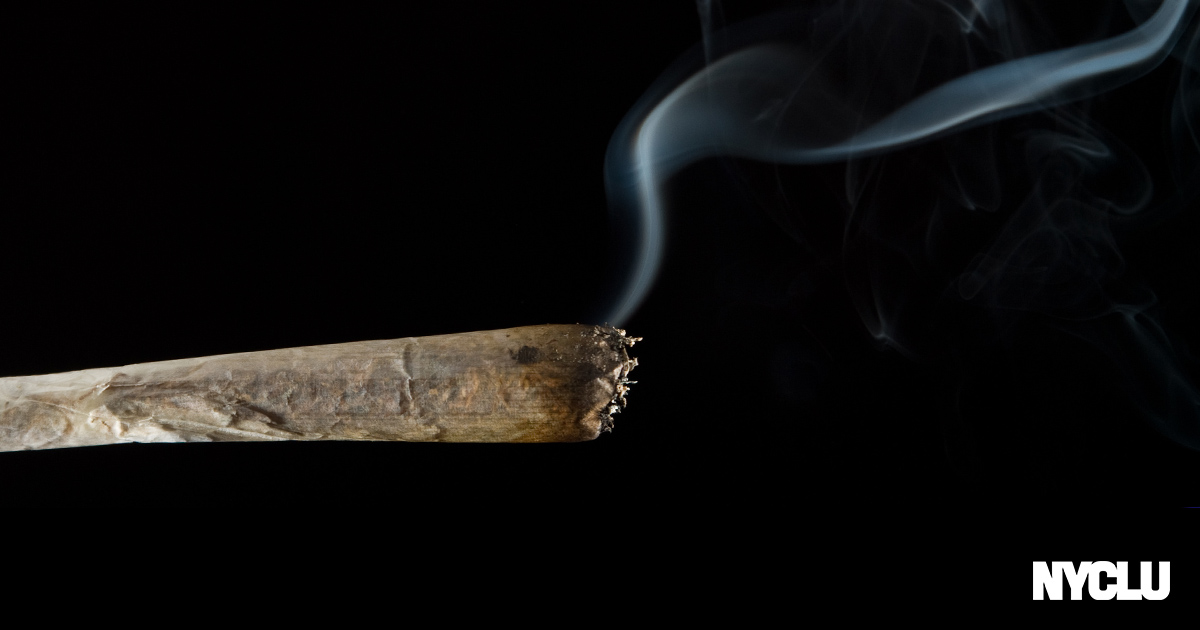Will New York Finally Legalize Cannabis?

As more and more states – including our neighbors in New Jersey – legalize cannabis, New York stands at the precipice of doing the same.
We have been here before. Over the last several years, there has been major momentum for ending the prohibition against cannabis and closing a chapter in our state’s war on drugs. But that forward progress has not been enough to get a bill across the finish line.
The stakes are clear. Each year that passes without legalization is another one in which thousands of people are senselessly arrested for cannabis-related offenses. More than 800,000 people across the state have been funneled into the criminal legal system since 1996 for behavior that a large majority of New Yorkers think should be legal.
These arrests can devastate people’s lives beyond potential jail time: educational and employment opportunities can disappear, housing and child custody can be put at risk, and lives can be destroyed.
The consequences of these arrests fall disproportionately on Black and Latinx people, who comprise 80 percent of those arrested for cannabis offenses.
The need for legalization is obvious, but exactly how we do it matters. The Marijuana Regulation and Taxation Act (MRTA) is the right way to end cannabis prohibition.
The MRTA allows adults 21 and older to legally possess, purchase, and consume cannabis for personal recreational use. It also removes marijuana and marijuana products from the state Controlled Substances Act and allows people to grow a small amount for personal consumption.
Legalizing cannabis today does nothing for New Yorkers who still have cannabis-related convictions on their record. Recognizing this, the MRTA eliminates most existing misdemeanors and felonies related to cannabis and expands ways for people to have their records expunged and to be resentenced for past convictions.
The stakes are clear. Each year that passes without legalization is another one in which thousands of people are senselessly arrested for cannabis-related offenses.
The legislation also includes measures that ensure a well-regulated, diverse, and inclusive legal cannabis industry going forward.
Legalizing marijuana will bring a substantial fiscal boost to our state’s coffers. Critically, the MRTA would direct hundreds of millions of dollars in annual state revenues from legal sales to good use. Half of the tax revenues would go to the Community Grants Reinvestment Fund for job training, after-school programs, and community-centered projects in low-income communities and areas hardest hit by the racist war on drugs.
These are often the same communities that have experienced the highest rates of infection and death from Covid, so these community reinvestment provisions will also be essential to the state’s recovery from the pandemic.
Another 25 percent of the surplus revenue would fund drug treatment programs and public education campaigns and the remaining share would help fund public schools.
Gov. Cuomo has introduced his own cannabis legalization proposal, but his plan falls short in several ways.
First, the MRTA ensures that a large percentage of the money generated by legalization flows into Black and Latinx communities who have been deliberately criminalized by the war on drugs. The governor’s proposal does not.
The MRTA would also make it illegal for police officers to use the smell of marijuana as a justification for stopping or frisking someone, unlike Cuomo’s proposal. One of the best ways to decrease police violence is to reduce the amount of contact people have with police. The smell of cannabis is one of the most frequent excuses police use to harass New Yorkers.
Along those same lines, the MRTA treats public consumption of cannabis as a public health ticket, not a criminal offense. Cuomo’s plan does the opposite.
The Governor’s proposal also does not fully clear prior criminal records or protect against discrimination in housing, education, or employment. And it does not include the MRTA’s social equity provisions that help ensure the cannabis market in New York is open to people of color and not overrun by big businesses owned by rich white people.
It is not enough to simply legalize cannabis, though it is shameful we haven’t done so already. We have to make sure that – in doing so – the people hit hardest by the war on drugs benefit the most.
